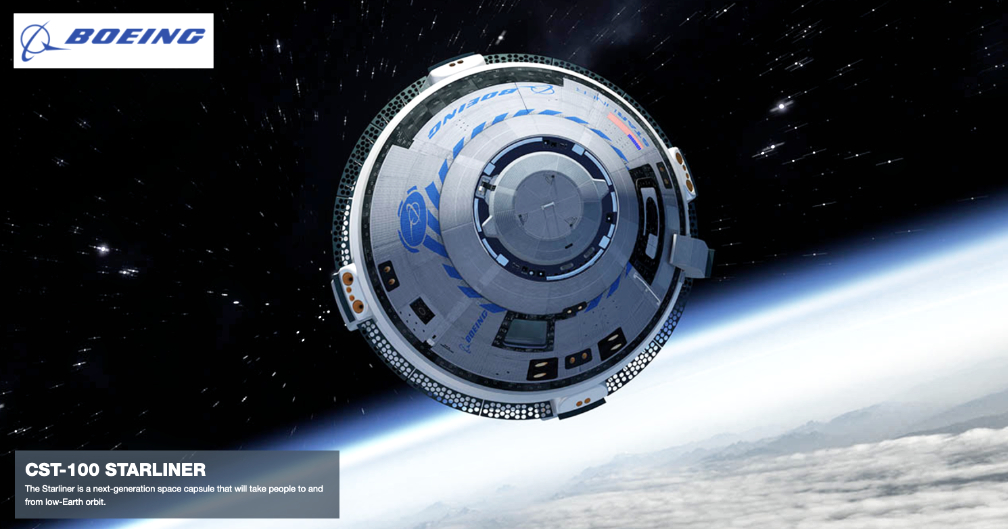
A United Launch Alliance (ULA) Atlas V rocket is in final preparations to launch Boeing’s CST-100 Starliner spacecraft on the second Orbital Flight Test (OFT-2) to the International Space Station (ISS).

The launch is planned for July 30 at 2:53 p.m. EDT from Space Launch Complex-41 at Cape Canaveral Space Force Station. The live launch broadcast begins no earlier than 2 p.m. EDT on July 30 at this direct link…
The Atlas V rocket will deliver Boeing’s Starliner spacecraft to a 98 nautical mile (nmi), sub-orbital trajectory. Following separation from the Atlas V, the Starliner engines will propel the spacecraft to its final orbit and on to the ISS.
Modified specifically for the Boeing Starliner spacecraft, the Atlas V configuration does not include a payload fairing. Instead, the Starliner’s own protective surfaces take the place of the fairing to protect the uncrewed spacecraft during ascent.
The Starliner is attached to the Atlas V using a launch vehicle adapter (LVA), which includes an aeroskirt to reduce aerodynamic loads on the vehicle. The Atlas V booster for this mission is powered by the RD AMROSS RD-180 engine. The Atlas V Centaur is powered by dual Aerojet Rocketdyne RL10A-4-2 engines, each producing 22,600 lb of thrust. The Centaur upper stage includes an active Emergency Detection System (EDS) that monitors the health of the rocket throughout the flight. The EDS also provides critical in-flight data that supports jettison of the ascent cover and initiates Starliner spacecraft separation. Aerojet Rocketdyne provided the two AJ-60A solid rocket boosters.

This will be the 88th launch of the Atlas V rocket and the 100th launch from Space Launch Complex-41. To date, ULA has launched 144 times with an admirable record of 100 percent mission success.
“This second orbital flight test provides us with an opportunity to further analyze the unique technologies developed for our Atlas V launch vehicle in support of NASA’s human spaceflight program,” said Gary Wentz, ULA vice president of Government and Commercial Programs. “Our ultimate focus is on the safety of the crew and this flight will ensure we are one step closer to preparing to safely fly astronauts in the near future.”
